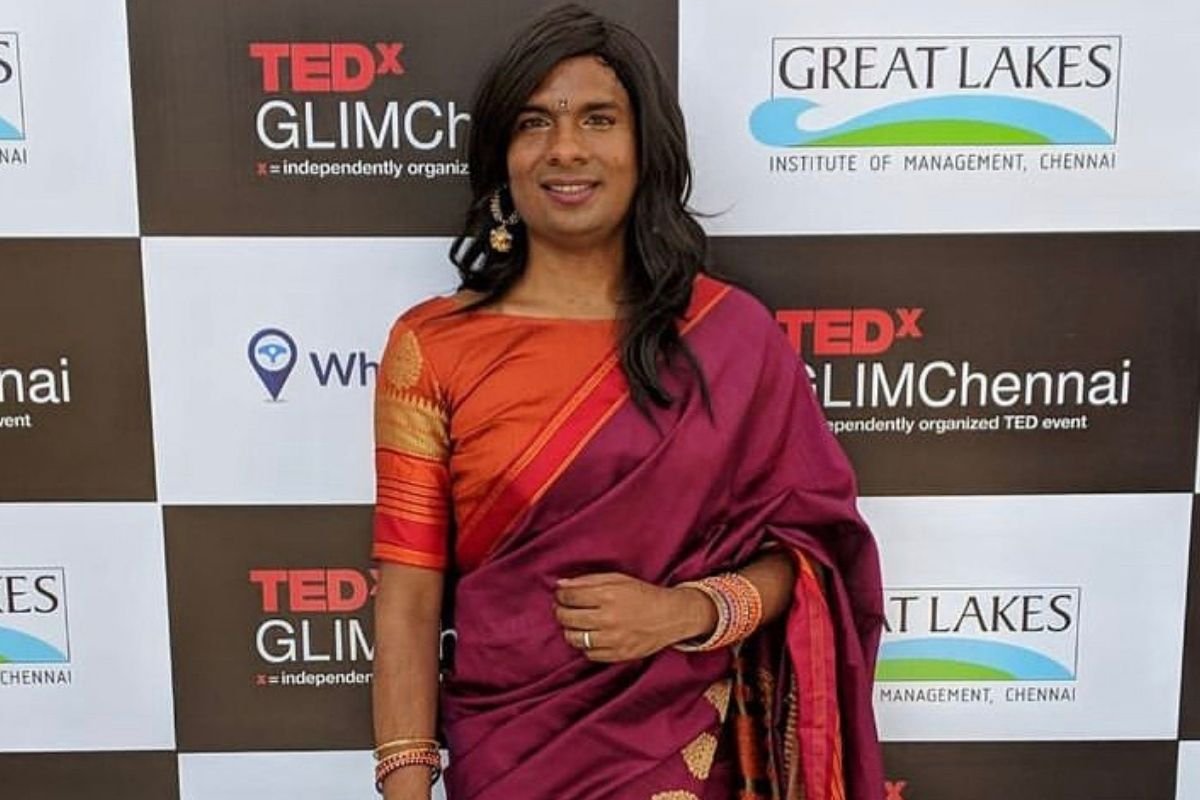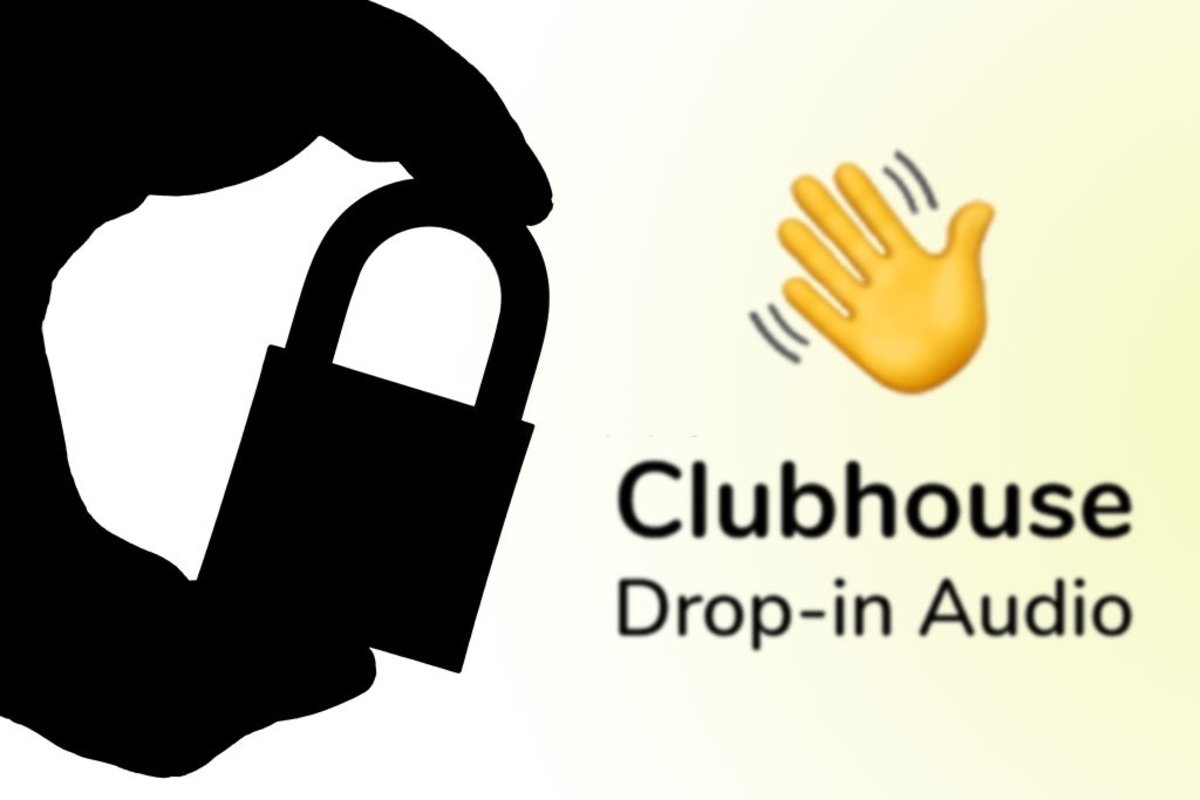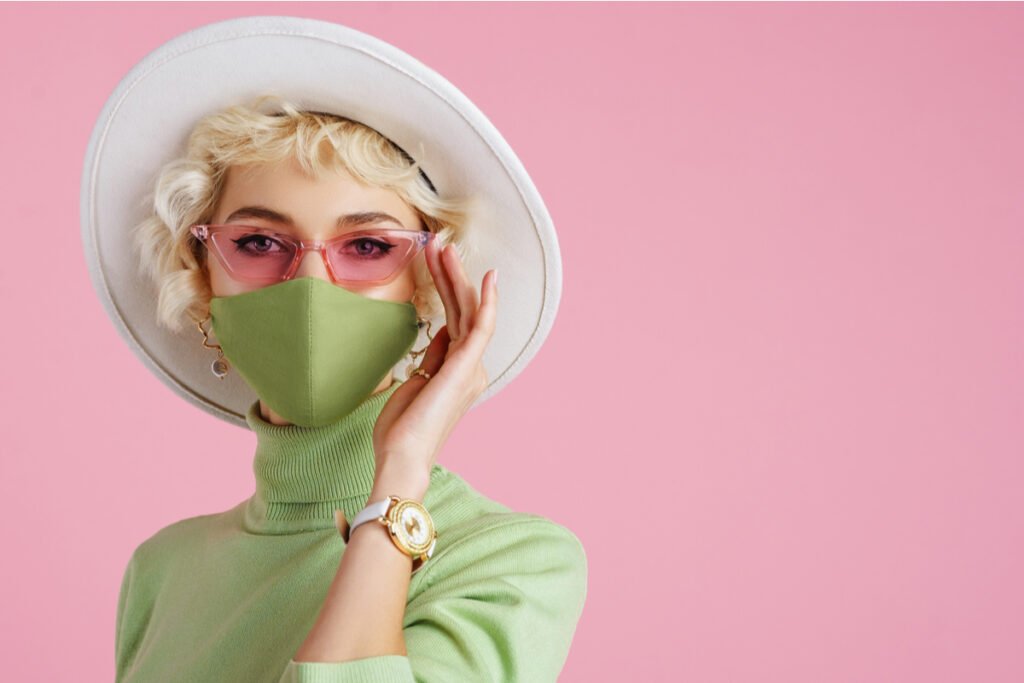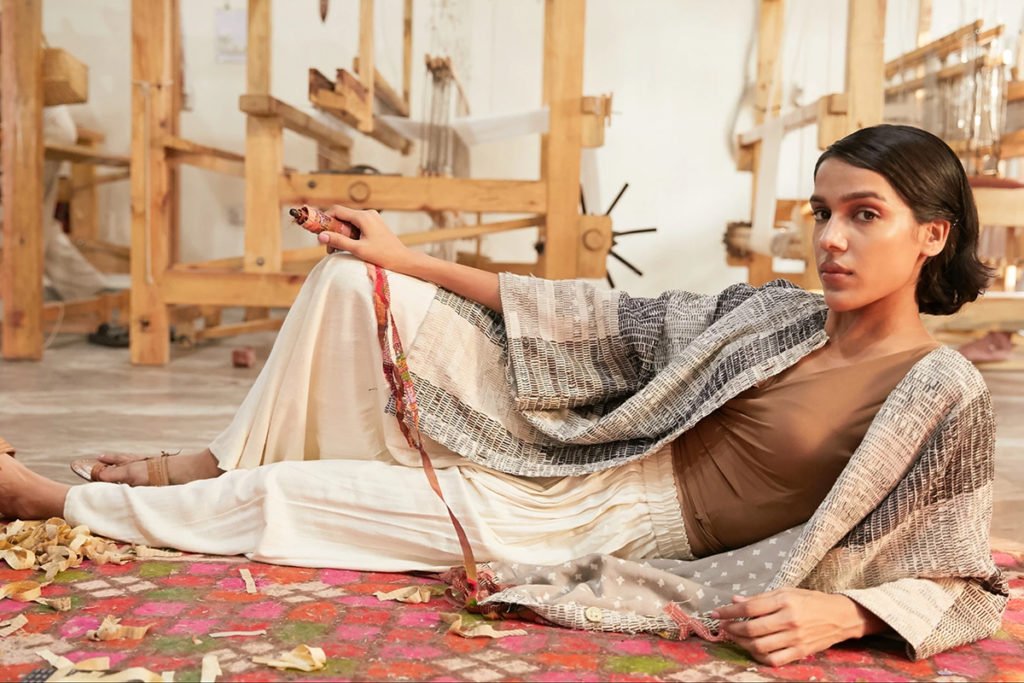Daniel Mendonca is a TEDx speaker; an international gender rights activist who engaged with diverse groups of people in India and other countries to expand awareness, build empathy and foster an environment that is accepting of diversity along with representing India at the UN to put forth the issues faced by the LGBTQIA+ community.
Mendonca’s awakening into the basic rights of being a transgender person in India is the pinnacle of her commendable journey. Far from being a life of ease, her former years pushed the LGBTQ rights activist towards unemployment and a sex care provider; her mother was detected with cancer after her husband left her in abject poverty for deciding to raise Mendonca. For someone to drop out of school in Grade IV is certainly not an easy task, owing to her classmates’ constant physical and sexual taunts. Subsequently, after embracing and accepting her sexuality, she had to bear a lot before restarting her education and obtaining a college degree. However, she didn’t surrender and completed a Bachelor’s in social work from the University of Mumbai and now achieves milestones for her community.
Here are some insightful snippets of our conversation with Daniel.
It’s not as simple as it looks, and it was not for you by the same token. When you found out about you being an intersex person, how did you acknowledge it? How did you acquaint yourself with the fact that you are not extraordinary but are unique?
For me, the word intersex itself came in 2013-14 when the UN gave a fact sheet on what intersex individuals are. I knew from little that I was extraordinary, yet I didn’t have the foggiest idea of what I was precisely. Along these lines, I generally viewed myself as a transgender individual. Later on, when I came to know about myself, it was troublesome because I come from a time when we just had channels like Doordarshan and no admittance to the web or something to that effect. Indeed, it has taken many years and struggles to arrive at a conclusion; to see what I am and what I want to be called or want to be known as.
People always ask me when the first time I came out was. And I always say to people that the first time I ever came out was out of my mother’s womb. I was absolutely normal. You considered me abnormal. There’s nobody who’s born abnormal. We are all the way we are made. We never ask heterosexual people when the first time they came out was. So why do we ask LGBTQI people?
“Sexuality is nothing that should come out; sexuality is something that needs to be cherished and loved.”
says Daniel Mendonca
This was probably the first time a college in India opened a toilet for the third gender, and the credit for making this happen goes to you, of course. So, what set you off to battle for this right?
So, all this started in school when I used the men’s toilet and boys used to gander at me since I generally used the shut entryway. This drove me to the phase when I was in college, and I felt extremely uncomfortable every time I used the men’s toilet. Moreover, when I used the ladies toilet, I used to get the same stare in various manners and ways. This was something that triggered me to my very first battle. I always thought – where was the option when we talk about inclusive spaces or smart cities? Do we consider LGBTQI+ individuals in this program and plan when that happens? So, where was my space as the right of an individual? Even when I go to public spaces, I don’t see any toilets that are separately made for LGBTQ individuals. That triggered a battle for a separate toilet where I asked my first right as a human being – the right to go to a toilet without feeling uncomfortable. It may not seem like a big deal for many heterosexual people, but it is a big deal for many gender minority people. We are uncomfortable using toilets meant for men or women because we are misbehaved with. So that led me to build the first separate toilet at Mumbai University.
When you were allowed an opportunity to either become entirely of a specific sex or stay how you are, you chose the former. Was it a troublesome choice for you, or had you already made a choice?
I had a decision in mind that I’ll stay like this until and unless I’m not convinced that I want to go through gender-affirming surgery. Perhaps later on, if I’m convinced that I want to do it, I will do it if I’m ready. But I don’t think that being a woman is all about your sex. You don’t have to change to be a woman. You don’t need to be slim and trim or have long hair to be a woman. The definition of a woman is an emotion. It has nothing to do with how you look and what you are. Even if I don’t look like a woman, or I may not be biologically or sociologically a woman, I am a woman because I know I am. When I thought of this ideology, that this is what a woman is, I came to only one conclusion – that being a woman is a choice.
“Womanhood is an emotion that you completely accept, which implies boldness.”
says Daniel Mendonca
What helped you and roused you to pick this way of battling for your privileges and the respect you have gained?
Dr Baba Saheb Ambedkar said that you have to stand for your rights. Nobody is going to fight on your behalf. So, when discrimination turns and becomes a point of violence, that is the time to speak. I think routinely about what was going on in my life when my discrimination became violent – when child abuse started taking place, no jobs, no employment, people looked at us in an awful way. That set me off to battle. If I don’t speak for myself, who am I going to speak for? Yet, I realized that speaking for myself already is a part of the process of becoming who I want to become. When I began battling for myself, I didn’t understand I was also battling for another age to come. I was also fighting for another generation to not go through what we have gone through. People like us who fight in society are building pillars for the next generation to help stand firm on their feet.

We have caught wind of your rousing journey, which was solid, loaded with battles, difficulties, and afterwards something astounding. So, what was that one defining moment in your life which had a major impact on your life?
I think the one defining moment in my life was when I realized that I don’t need to be scared of society. It doesn’t matter if society accepts you or not. What matters is whether your family acknowledges you or not. We are living a life full of ourselves and on our own terms and conditions. We have the freedom to love who we want to, marry who we want to and, the day these thoughts began coming out, and I couldn’t care less about society. This was the turning point of my life when I understood that I could be happy being myself without considering what society needs to think about it.
You have addressed the LGBTQI+ group at all levels. What did it take you to achieve that? How did you get there?
I think my work has made me reach where I am. When I say that my work speaks on my behalf, I mean it. I have gone to various countries, various seminars to address the LGBTQI+ group and conducted workshops on gender sensitivity in universities across the globe. However, I generally say that I never represented the community, but I represented myself. I didn’t realize that when I was representing myself, I was representing the community as well. That drove me to understand the diverse problems of LGBTQI+ people across the globe. The problems we may face in India are not faced by LGBTQI+ people worldwide. Yet, what unites us is the discrimination that we face as a global movement and to say that we are queer and we exist. Regardless of how progressive a country is, whether it’s the USA or Australia, which may have laws, sanctions, or same-sex marriages, I have acknowledged that laws only change when people’s perspectives change. Until and unless people’s attitudes don’t change, no matter how many laws you make, there will still be discrimination. We need to alter people’s mindsets and make them realize that we are equally human.
Your journey has been extremely long and powerful. What do you believe were the most difficult stages or quite possibly the most difficult periods of your journey?
One of the most challenging phases of my journey was getting a job and coming into the education system. Now at least we are aware of the happenings around us. But when I started, I was the first intersex person who completed graduation with a silver medal. It was so difficult to get into something and come out with your actual identity at that time. It’s anything but a ton of difficulties, and you must be prepared for the discrimination you will confront. In fact, we all have faced that at some point or the other. I never realized I would find a way to come out as who I am and become who I am. I confronted the challenge. And it was also after I completed my graduation, I started to talk about safe workplaces for the LGBTQI+ community. And that led me to work with different companies around the globe and India to talk about inclusive workplaces. I was appointed as an advisory board for a community visit. I have spoken in Dell, HP, Microsoft, Goldman Sachs, and similar companies to create inclusive and safe spaces for all genders.

How did you advocate for diversity, equity, and inclusion among individuals who didn’t understand its importance?
I think our own representation is sufficient when you walk into a room. Your presence, your essence, and the way you are should be loud and clear. So, when it comes to talking to people and giving them representation, I think you, yourself, as a representative, is more than enough to talk on behalf of you. I think equality and diversity are something that we have confidence in because, as a country, we have consistently trusted in the balance of equality, variety of food, language, culture, and religion. So, why is it hard for us to acknowledge the diversity of sexual orientations and gender identities? Since we have an extraordinary history of LGBTQI+, diversity and inclusion isn’t that troublesome to discuss. It is the outlook of individuals that should change. I think my representation was more than enough at each point. What’s more, I made a point that there should be a representation of LGBTQI+ people to give an equal right at any place.
In your TedX speech, we have heard you say that people judge success by money and you by respect. So, how significant is this for you?
It is significant because there is a great deal of contrast between earning money and earning respect. You may have a lot of cash in your pocket. However, consider the possibility that you don’t have any respect from people around you. Now imagine that you might not have a great deal of money, yet you have a ton of respect that when you stroll out, and people say, look, this is the individual who did this. As you said, I was responsible for separate toilets. It gives me a great deal of joy when individuals know you for what you have done rather than for what you have procured. Of course, money is important to carry on with life. However, I’ve always believed that I need just that amount of money for my food, clothing, shelter, and nothing above or below that. I have consistently been adhering to that since the amount of respect that I have earned at this age; it will require a long time for individuals to acquire this much in the coming years. The money is not going to suffice you, but the respect will. If tomorrow you are in need, your work and the person you are will help you make your living tomorrow.

As the controversial section 377 was decriminalized in 2018, did it make any difference in your journey towards fighting for your rights?
As far as I might be concerned, it doesn’t make any difference since we were here even before the section was there. Yet, it is one of the milestones in history that we are reaching somewhere we need to. Earlier, we were considered criminals, and now we are not. Yet, in my opinion, it has not affected the community much. The community will get impacted when we have employment and education; when we have equivalent spots to demand in public spaces; where we get the right to marry, right to adoption, right to a house, rights to our parent’s property, since we are eliminated from the house; where we get a legal document of name change; and lastly when this is all hassle-free. I believe that is a day I could truly say that I live in a country that gives me equivalent rights and does not treat me as a second-class citizen.
“My future objective is to look up to a country that is developed, regards each individual’s pride and personality, gives work and opportunities independent of sexual orientation and treats males, females, and diverse genders equally.”
says Daniel Mendonca
According to you, what does an LGBTQI+ individual go through when they attempt to recognize their identity? What sort of challenges should they prepare to confront?
One of the challenges is denial. There are many timeframes when we feel that this is only a phase because we are young and everything will be all right. One is unquestionably in denial, which prevents us from recognizing and knowing ourselves. Second is the dread of society’s opinions and how our families react when they become acquainted with the truth. I think societal dread is something that must be truly tended to. Lastly, when you grow up, how would you tell your peers? When many others are discussing their boyfriends and girlfriends, there you are, feeling something that stands apart. You feel like this isn’t who I am; I am somebody else. So how do you tackle all these fears that eventually grow with time, and these fears become horrors? You start questioning your own identity.
You have been battling for LGBTQI+ rights for so long. We were hoping you could share a few objectives that you’ve accomplished till now. Also, what are you planning to accomplish moving forward?
One of the objectives was equivalent work environments that I have accomplished working in an organization where people just discussed the health infrastructure, yet it was new to discuss employment. Around then, everyone thought nobody would give us work, but we are gradually accomplishing that. My subsequent goal was representation in the government, which is also happening – Tamil Nadu is delegating Narthaki Nataraj, a Bharatanatyam dancer and a transgender person, to the State Development Policy Council (SDPC). So, the law was something that we needed to battle for, and still, we are going ahead. We also see the Madras high court judgment, where they boycotted conversion therapy, and now schools and sex education need to be implied to comprehend LGBTQI+ issues. It gives guidance to police to identify if a girl or a boy are missing and if their parents are launching the complaint, and when you find out that they are in a consenting relationship. If the person is gay or lesbian, the police must drop the case and not harass the couple. Thus, these changes are gradually occurring; however, we need to keep fighting.
Fighting for all these rights was not as easy as it looked yet. Daniel overcame the uphill battle and is living a respectful life! We hope to see more of her and that she encourages the youth of India and elsewhere.








1 Comment
Saumya Singh
July 16, 2021 at 9:32 am
I have read about Daniel but this interview has been crafted with a niche!